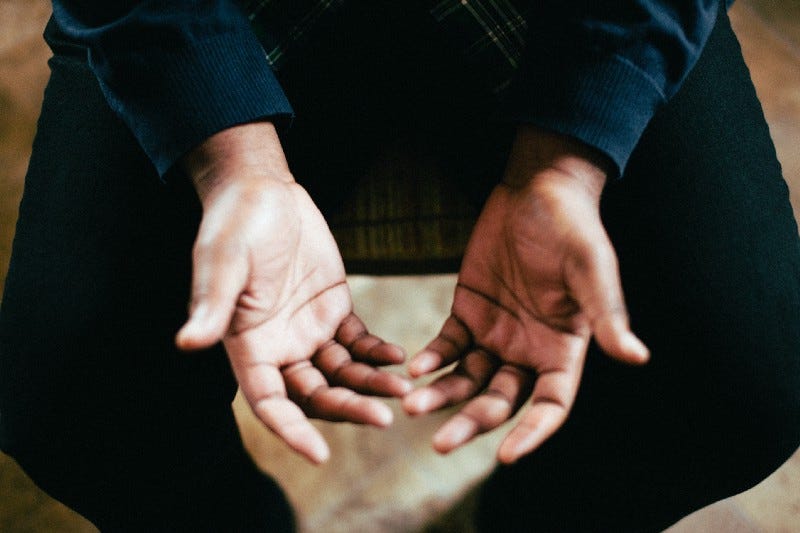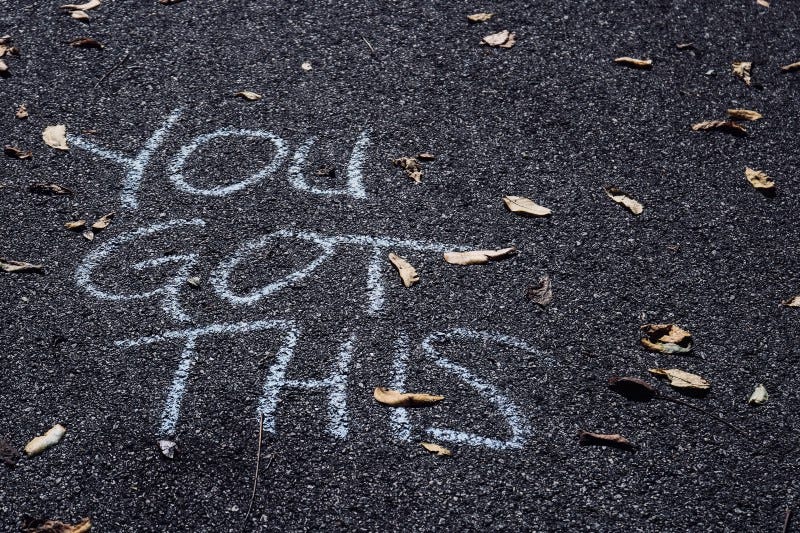Responding to Call-Outs with Wisdom and Grace
What you do after a screw-up defines who you really are.
It’s what you do after a screw-up that defines who you really are.

A few weeks ago, I got drinks with a friend and fellow teacher — let’s call her Amanda. Amanda’s a total spitfire, full of passion and possessed with a strong sense of right and wrong. Amanda is constantly self-educating about systemic problems, and forever improving her social justice vocabulary.
Amanda cares about a variety of issues, from ableism to fatphobia to transphobia, and works hard to teach other people about each of them, too. She is also a human being, which means that despite all her best efforts, she is destined to screw up some of the time.
We were halfway into our first round of drinks when Amanda said she had something to tell me.
“I was giving a lecture on gender differences in Autism,” she said to me, fiddling with a drink stirrer. “And I was trying to talk about how the research says men and women sometimes experience Autism differently… but I wanted to make sure I was inclusive of transgender people.”
“Uh-huh,” I said, taking a long sip of my cider.
“But I said it all wrong.” Amanda sighed and her eyes got a bit red. “I said people who are socialized female are more likely to hide their Autism than people who are socialized male. Which isn’t what I meant — it just came out all wrong.”
I’m both Autistic and transgender, and I ‘masked’ my Autism for years, so Amanda’s comments cut right to the heart of my life experience. And she was right; the way she described gender differences in Autism was a little reductive. I could understand both why she’d sought me out to discuss this, and why she felt a bit guilty for screwing up.
But Amanda was more than a bit guilty. She was getting visibly upset at this point in the conversation, holding back a few tears.
“I feel like by saying it that way, I misgendered you, and people like you, and I also unintentionally called transgender women ‘male’,” she told me. “And I know that’s not true. I froze as soon as I realized what I was doing. A student even spoke up to correct me.”
Amanda’s voice quavered a bit, and she paused and steadied herself. “I’m not going to cry at you and make you comfort me about this. I just wanted to tell you, and apologize. I felt so horrible. As soon as the class was over, I shut the door and just sobbed.”
…
Amanda is like a lot of conscientious, social-justice-minded folks I know. She cares immensely about a variety of issues. She feels a commitment to social justice deep in her heart. She also wants to get things “right” as much as humanely possible. So when she made a misstep, it caused her serious emotional whiplash. She was so filled with guilt that it got in the way of her course-correcting in the middle of her lecture. Even days after her mistake, she still felt haunted by it, because her actions seemed to betray the values she holds so dear.
Well-intentioned people respond to mistakes in all kinds of ways. They misgender a loved one, and then short-circuit with anxiety so badly they don’t get the chance to fix it. They repeat a bigoted joke and then run away rather than own up to what they did. They hurt someone’s feelings, then apologize so profusely that it makes the person they hurt feel even more uncomfortable.
I can understand why many people’s first response to a social justice screw-up is to berate themselves or break down in tears. Ultimately though, it’s counter-productive to expect perfection of ourselves. Each of us is a work in progress, forever unlearning prejudices and practicing new ways of thinking. It is the process of constant growth and self-improvement that defines who we are — not our worst moments or biggest gaffes.
It’s very natural and understandable to have white-hot emotional reactions — it’s a sign that we care. But we don’t deserve to suffer just because we made an error. So what should we do instead, when we screw up, hurt someone, or get called out? It all comes down to self-compassion, gratitude, and openness. Absolutely no guilt is necessary.

Correct yourself and move on
Often, our first reaction to screwing up is feeling super defensive. When our actions run counter to our values, it threatens our image of ourselves as compassionate and well-informed people. We may immediately be caught up in feelings of awkwardness and embarrassment, or a deep swelling of empathy for the person that we’ve harmed. We might even be in denial that we’ve done anything wrong, because admitting fault seems too painful.
These emotions are heavy, and most people need time to deal with them. But in the heat of the moment, it’s also important to correct yourself and apologize. Apologies should come breezily, with as little hand-wringing and excusing as possible. You don’t want to make the person you’ve harmed explain themselves, comfort you, or downplay any harm you’ve done.
By responding to a call-out in a matter of fact, straightforward way, you can deescalate an uncomfortable situation, and model what good allyship looks like. Everybody says ignorant or hurtful things from time to time — whether it’s using an outdated term, misgendering someone, or perpetuating a hurtful stereotype. Treat it the way you would treat stepping on somebody’s toes — move your foot, apologize, and keep walking.
Thank the person who corrected you
Recently, I co-led a workshop with J.T. Turner, the director of UIC’s Gender and Sexuality Center. During the workshop, J.T. talked about how screwing up and getting corrected is something they feel a lot of gratitude for.
“Anytime someone takes the time to educate me and correct me about something I’ve done, I think, what a gift,” they said. “What an opportunity to learn more, and a reminder of how much more there is to learn about.”
They’re right; getting corrected by someone really is a gift. It takes a lot of bravery to tell someone that they’ve done harm. Those conversations don’t always go well. I’ve had friendships end because I told someone that their actions hurt me, or that they’d unintentionally been racist or sexist. And every time a person responds poorly to a gentle call-in, I become a little less likely to correct them in the future. It really frays your trust in a person when they punish you for speaking the truth.
If someone corrects you for making a mistake, it’s a compliment. It means they trust you to handle it well — or that you at least deserve a chance to make things right. They’re helping you learn, and they’re risking conflict in order to do it. So you ought to thank them.
Make space to feel your feelings
After you’ve had a chance to briefly and breezily apologize, it’s time for you to get some space and process any complicated or hard feelings you might be having. It’s normal to feel a variety of unpleasant emotions after being told you did something wrong — anything from sadness to rage. Your reactions might surprise you. They might also teach you something important about what your biases and insecurities are.
Sometimes, when I get called out, I instantly feel embarrassed and apologetic, and I want to weep and self-flagellate. Other times I’m furious at the person who corrected me and I really want to chew them out. Sometimes I want to erase all evidence of my mistake and pretend it never happened. None of these emotions are wrong or bad — it’s how I deal with them that matters.
Find a suitable time and place to explore how you feel. I like setting aside a half an hour to write down what I’m feeling in a journal. I don’t self-censor during this time — I’m allowed to write really pissed-off, uncharitable things. If I’m feeling especially anxious about the mistake, I might go on a long, electro-pop-fueled power-walk. If I can, I find someone neutral to talk to about the mistake. For me, it’s important that the person be both compassionate and candid. I don’t want someone who will downplay the harm that I’ve done, but I do want a bit of understanding and empathy.
Usually, I find that reflecting on why a call-out made me angry or sad really helps me uncover deep-seated issues that I have. Often my reactions are caused by white fragility or a general fear of being abandoned for not being ‘perfect’. The more I get comfortable with these feelings, the less likely they are to cloud my judgement in the future.

Practice self-compassion
Society has programmed each and every one of us with ignorant ideas, damaging stereotypes, and judgmental attitudes. That programming doesn’t go away the moment we choose to start fighting for what’s right. In fact, much of the fight for justice happens internally. We change and improve ourselves as we work to change and improve our world.
Growth is a process of constantly uncovering and confronting the backwards ideas that lurk inside us. But in order to really dig deep, we’ve got to accept that we might not always like the things we find. These discoveries don’t reflect anything uniquely horrible or loathsome about us. Having these attitudes isn’t even our fault.
When we respond to an error with anxiety and fear, we make it harder to respond and apologize in the moment. When we are shocked by something that is perfectly normal and common, we slow down the growth that each of us desperately needs and deserves. Instead of moving on with self-compassion, we get stuck in a loop of denial and regret.
To get past this, we have to learn to be gentle with ourselves. When we introduce ourselves to new ways of thinking and speaking, slip-ups will be a natural result. If you find yourself having to apologize or restate things, it’s not a sign that you’re a horrible or bigoted person. If anything, it means you’re challenging yourself in important ways. You should be proud of that. And grateful to the people who are helping challenge you. It’s okay if you never stop screwing up. It’s how you handle the screw-ups that really matters.



